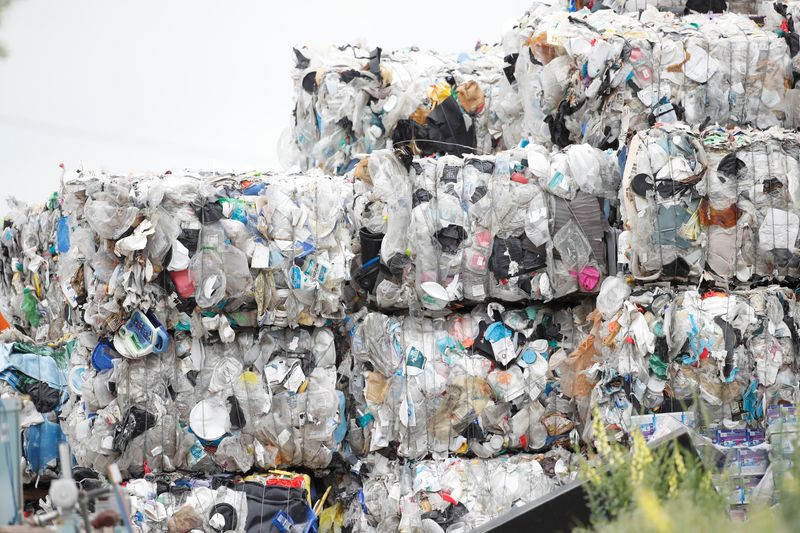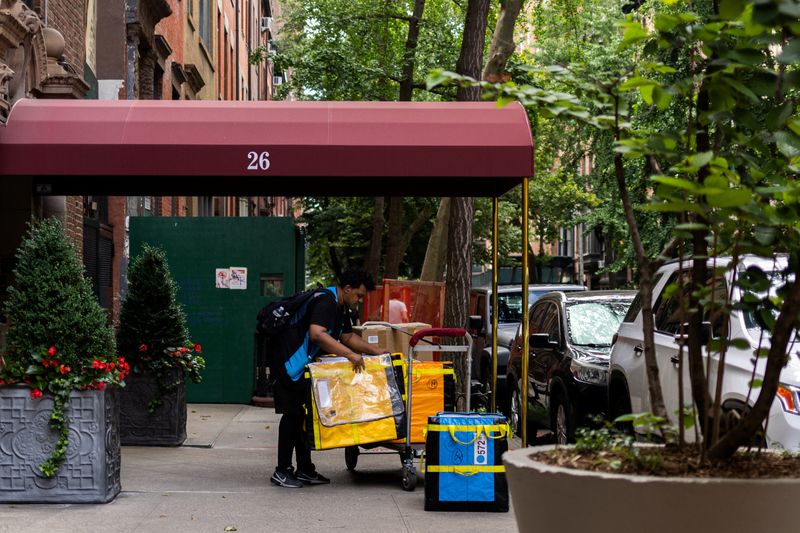By Valerie Volcovici
WASHINGTON (Reuters) -The United States, one of the world's biggest plastic makers, will support a global treaty calling for a reduction in how much new plastic is produced each year in a major policy shift, a source close to U.S. negotiators told Reuters on Wednesday.
The change away from its earlier calls to leave such decisions up to each country puts the U.S. in direct opposition to countries like Saudi Arabia and China.
Those countries have argued that the hoped-for United Nations treaty, which negotiators are scheduled to conclude at a November summit in Busan, South Korea, should ignore questions of production and focus on downstream measures, such as encouraging recycling and changing packaging design.
The Busan talks will take place after the U.S. presidential election on Nov. 5, in which Vice President Kamala Harris is up against former President Donald Trump.
Trump has previously shunned global environmental agreements and pulled the U.S. out of the UN Paris climate agreement.
HIGH AMBITION COUNTRIES
The policy shift also puts the U.S. in closer alignment with a group of so-called high ambition countries that includes EU member states, South Korea, Canada, Rwanda and Peru and has called for a global plastics treaty to cap and phase down the production of plastic.
The group has also targeted a list of chemicals of environmental concern used in plastic production that should be eliminated.
The U.S. now also supports working to create a possible global list of chemicals on which to develop obligations to avoid a "patchwork" of different national requirements, as well as set global criteria to identify what should be on a list of "avoidable plastic products" to phase out, the source said.
The debate over whether a UN treaty should seek to limit the amount of plastic being made drove the last round of negotiations in Ottawa in April to overtime, with major plastic and petrochemical producers like Saudi Arabia and China blocking further negotiations around production caps, arguing that countries should focus on less contentious topics, such as plastic waste management.
The EU and other parties have raised concerns that ongoing divisions between countries over the scope of the treaty will make it difficult to close negotiations in Busan.
They have launched an effort called the "Bridge to Busan" to keep plastic production targets "alive" in the treaty text at the Busan talks. The source did not say whether the U.S. would support that effort.
The White House briefed stakeholders on Wednesday on its shift in position "that raises ambition", the source said.
The change in position drew criticism by industry groups and cautious praise from environmental groups.
The American Chemistry Council said the shift signals that the Biden administration "caved" to the wishes of environmental groups. The ACC backs a global treaty but does not support caps or lists of chemicals to control.
"With today’s shift in position to support plastic production caps and regulate chemicals via the UN Plastics Agreement, the White House has signaled it is willing to betray U.S. manufacturing and the hundreds of thousands of jobs it supports," said Chris Jahn, president of the ACC.
Greenpeace called the shift a "watershed moment" in the fight against plastic pollution.

"It is a welcome signal that they are finally listening to the demands of the American people," said John Hocevar, Greenpeace USA Ocean’s Campaign Director.
The changes come ahead of a meeting in Bangkok parallel to the ongoing treaty negotiations later this month and after the U.S. last month laid out new policies to tackle plastic pollution.
